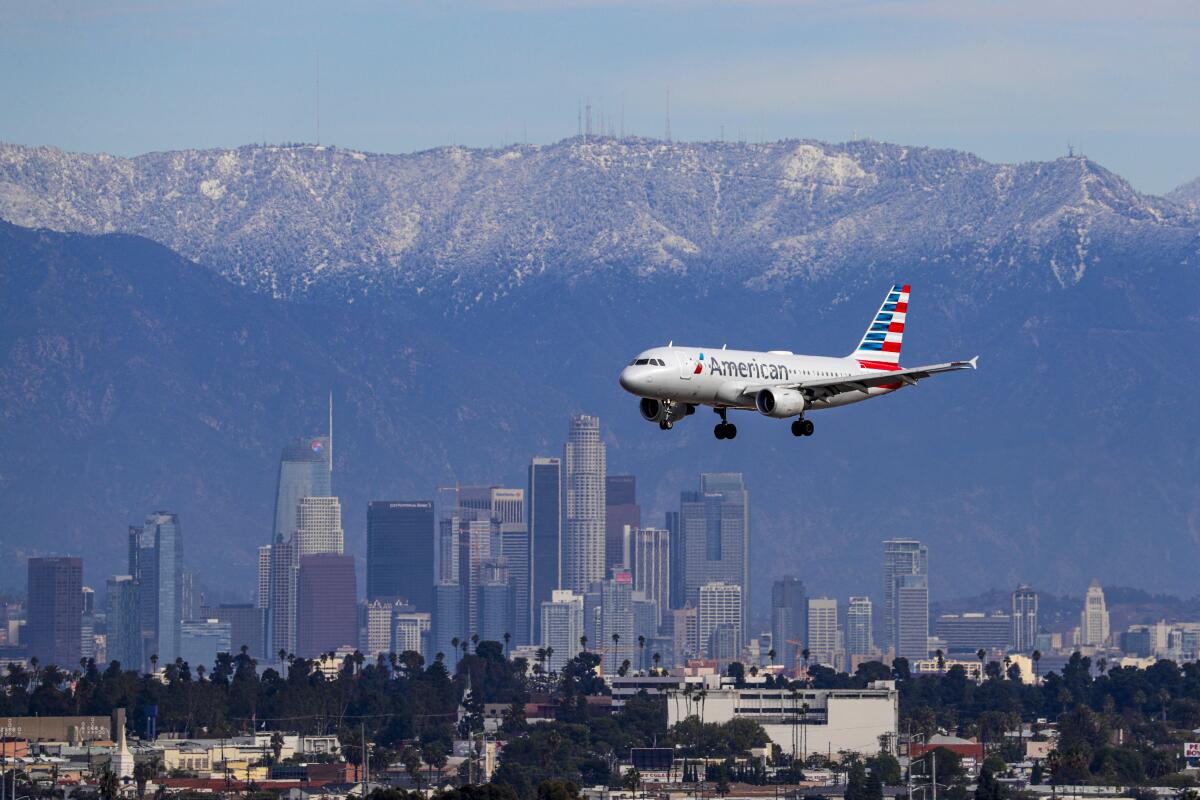Letters to the Editor: ‘Flight shaming’ attacks one of the most climate-friendly modes of transportation

- Share via
To the editor: Given the increasing demonization of the airline industry for its supposed negative environmental impact, one might wonder just how bad air travel is for the environment.
An analysis done by the U.S. Department of Energy shows air travel efficiency well ahead of every other form of travel except intercity rail. (Intercity rail is only slightly better than air travel). The analysis does not account for air cargo, which is carried on nearly every flight.
One should not forget that for a transcontinental domestic flight, passengers arrive in five hours instead of five days as for ground travel. There is the value of one’s time to be accounted for.
The environmentalists will fight to end all air travel even though it is responsible for only 2.4% of the carbon dioxide emitted globally, and in spite of air travel’s huge positive impact on nearly all industries and most people’s lives. The facts presented here should be expressed as forcefully, widely and constantly to the public as the environmentalist views are so that a correct balance in our society is achieved.
Scott Taylor, Santa Barbara
..
To the editor: I despise the idea of “flight shaming,” but my friends and family all changed travel plans last year because we knew that as consumers, our flights were feeding global carbon emissions.
We took the train for part of a cross-county trip, visited local states by car instead of flying somewhere far away, and signed up for local and webcam workshops rather than jumping on a plane to some remote conference hall.
I’m pleased that our choices are making the airlines take note. We plan to increase our environmentally conscious travel this year. It’s turned out to be a great way to see new things along the way, do business around the world and feel better about our economic and environmental choices.
Suvan Geer, Santa Ana
More to Read
A cure for the common opinion
Get thought-provoking perspectives with our weekly newsletter.
You may occasionally receive promotional content from the Los Angeles Times.









